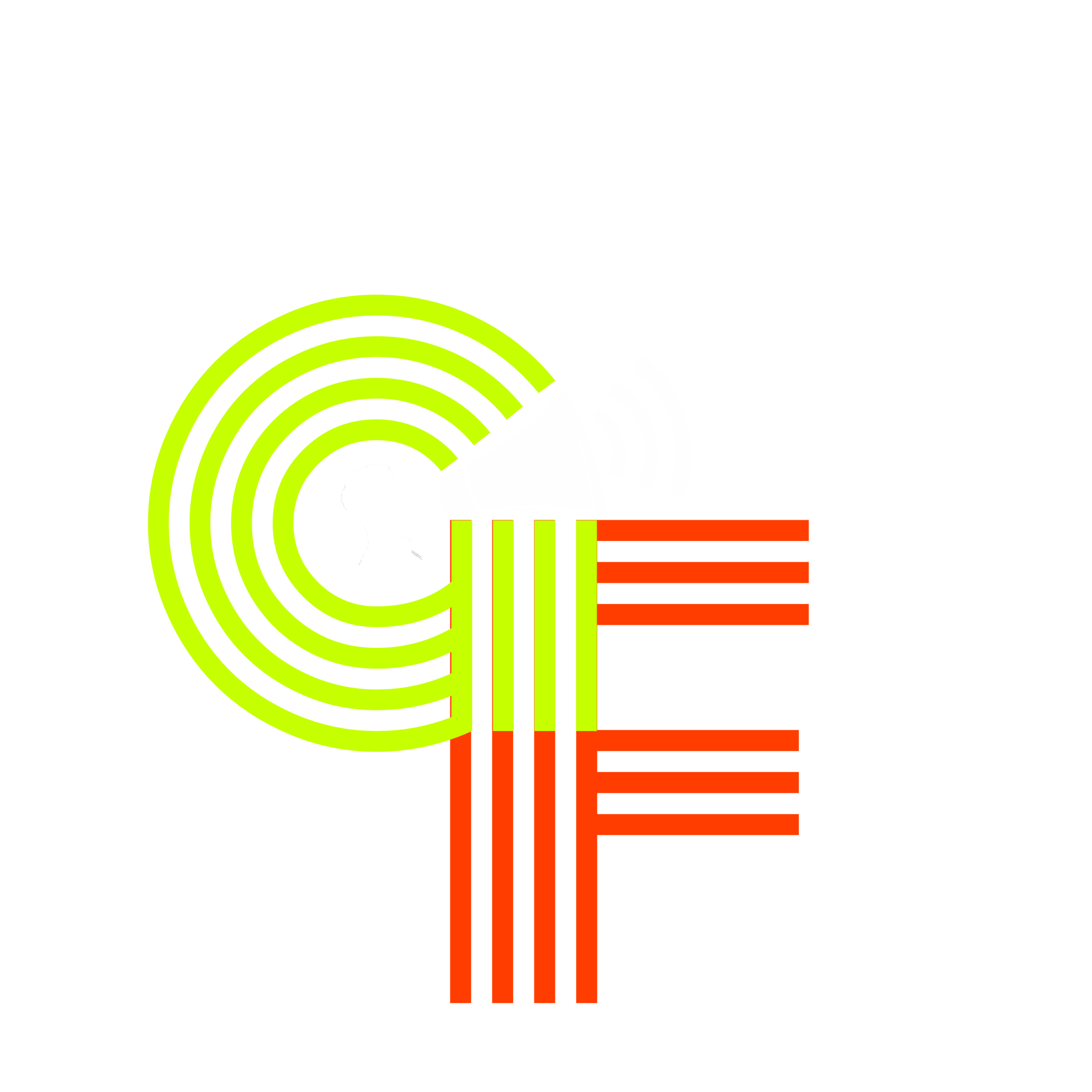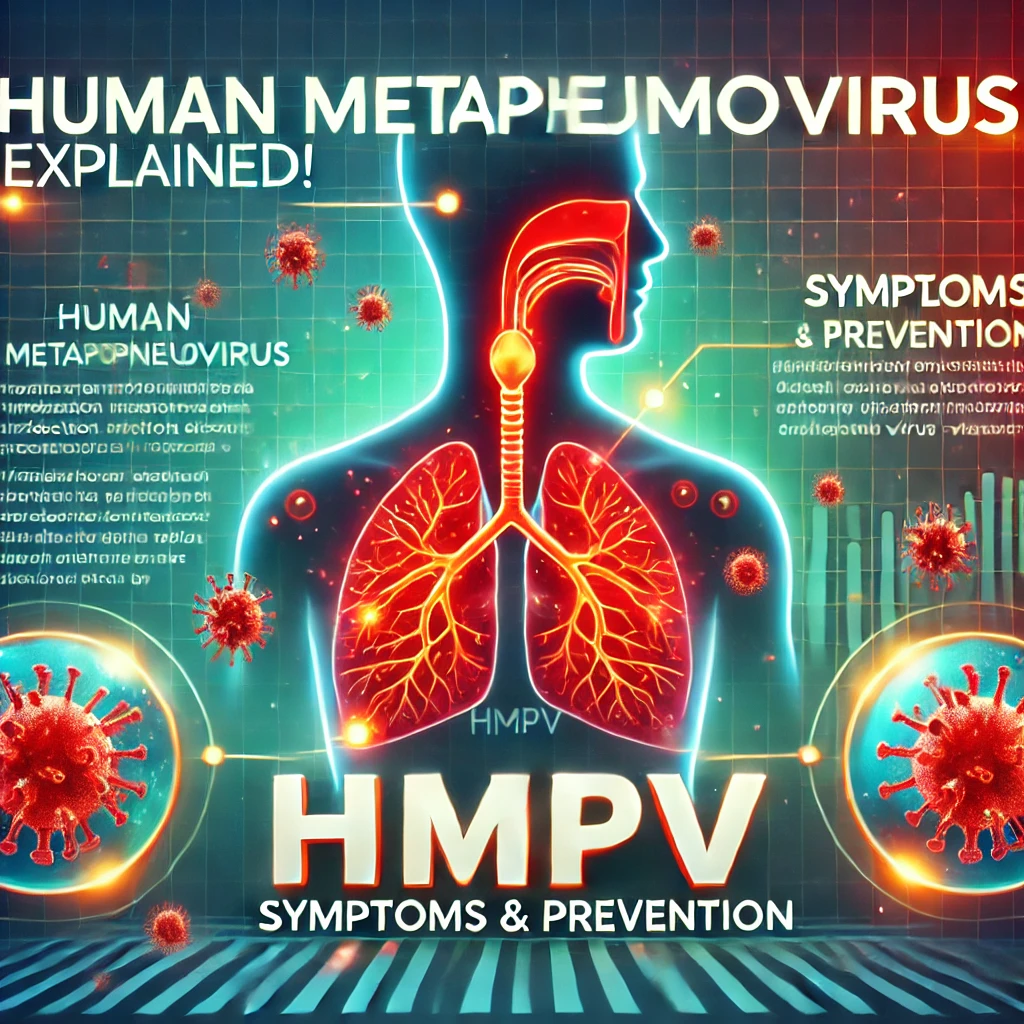What is HMPV?
Human Metapneumovirus (HMPV) is a virus belonging to the Paramyxoviridae family. It was first discovered in 2001 and is closely related to respiratory syncytial virus (RSV). It primarily affects the lungs and airways, causing respiratory infections.
Transmission
- Mode of Spread:
HMPV spreads through respiratory droplets when an infected person coughs, sneezes, or talks.
Indirect Contact: By touching surfaces contaminated with the virus and then touching the nose, mouth, or eyes. - Incubation Period: Typically ranges from 4 to 6 days after exposure.
Symptoms
- Mild Cases:
- Cough
- Nasal congestion
- Sore throat
- Fever
- Severe Cases:
- Shortness of breath
- Wheezing
- Difficulty breathing
- Pneumonia or bronchiolitis (especially in children, older adults, or immunocompromised individuals)
High-Risk Groups
- Infants and young children
- Older adults (especially those over 65)
- Individuals with chronic health conditions (e.g., asthma, COPD)
- Immunocompromised individuals
Diagnosis
- Clinical Evaluation: Based on symptoms and medical history.
- Laboratory Tests:
- Polymerase Chain Reaction (PCR) to detect viral RNA.
- Rapid antigen detection tests.
- Serological tests (less common).
Treatment
- No Specific Antiviral Drugs: Treatment is supportive.
- Mild Cases: Rest, hydration, and over-the-counter medications for fever and congestion.
- Severe Cases: Oxygen therapy or mechanical ventilation in a hospital setting if necessary.
- Prevention:
- Practice good hand hygiene.
- Avoid close contact with sick individuals.
- Disinfect frequently touched surfaces.
- Cover your mouth and nose while coughing or sneezing.
Prevalence and Impact
- Seasonality: HMPV infections are more common in late winter and early spring.
- Global Spread: It affects individuals worldwide, contributing significantly to pediatric and adult respiratory infections.
Research and Vaccines
- Currently, no approved vaccines exist for HMPV. Research is ongoing to develop vaccines and antiviral treatments.
- Scientists are exploring monoclonal antibodies and other therapeutic options for high-risk populations.
Human Metapneumovirus (HMPV) has recently garnered attention due to a rise in cases across various regions, including China and India. Here’s an overview of the latest developments:
Global Situation
- China: In late 2024, China experienced an increase in HMPV infections, particularly in northern provinces. Health officials noted that the surge aligns with typical seasonal patterns, and the World Health Organization (WHO) confirmed that the infection levels are within expected ranges for the winter season. Notably, the rate of HMPV infections in northern China is reportedly declining.
- Spain: Experts in Spain have emphasized that HMPV is neither new nor unusual. The virus has been known since 2001 and circulates regularly, especially during the winter months. The recent increase in cases is considered typical for the season, and no significant surge is anticipated.
Situation in India
- Reported Cases: As of early January 2025, India has reported several cases of HMPV across different states:
- Karnataka: Two cases detected in infants aged three and six months, both presenting with respiratory symptoms.
- Gujarat: A two-month-old boy in Ahmedabad tested positive for HMPV after being admitted with respiratory infection symptoms.
- Tamil Nadu: Two active cases reported in Chennai and Salem; both patients are in stable condition.
- Maharashtra: Two children in Nagpur tested positive for HMPV; they have since recovered.
- Government Response:
- Union Health Ministry: Health Minister J.P. Nadda has reassured the public, stating that HMPV is not a new virus and has been circulating globally for years. The ministry is closely monitoring the situation and has emphasized that there is no cause for concern.
- State Health Departments: States like Karnataka and Delhi have issued advisories focusing on preventive measures, including maintaining hand hygiene, covering the mouth and nose while coughing or sneezing, and avoiding public places if symptomatic.
Preventive Measures
Health authorities recommend the following to reduce the risk of HMPV infection:
- Hygiene Practices: Regular handwashing with soap and water.
- Respiratory Etiquette: Covering the mouth and nose when coughing or sneezing.
- Avoiding Close Contact: Staying away from individuals exhibiting respiratory symptoms.
- Disinfection: Regularly cleaning frequently touched surfaces.
While HMPV can cause respiratory infections, especially in young children, older adults, and immunocompromised individuals, it is generally not considered a significant public health threat. Most cases are mild and self-limiting, resolving with supportive care.

